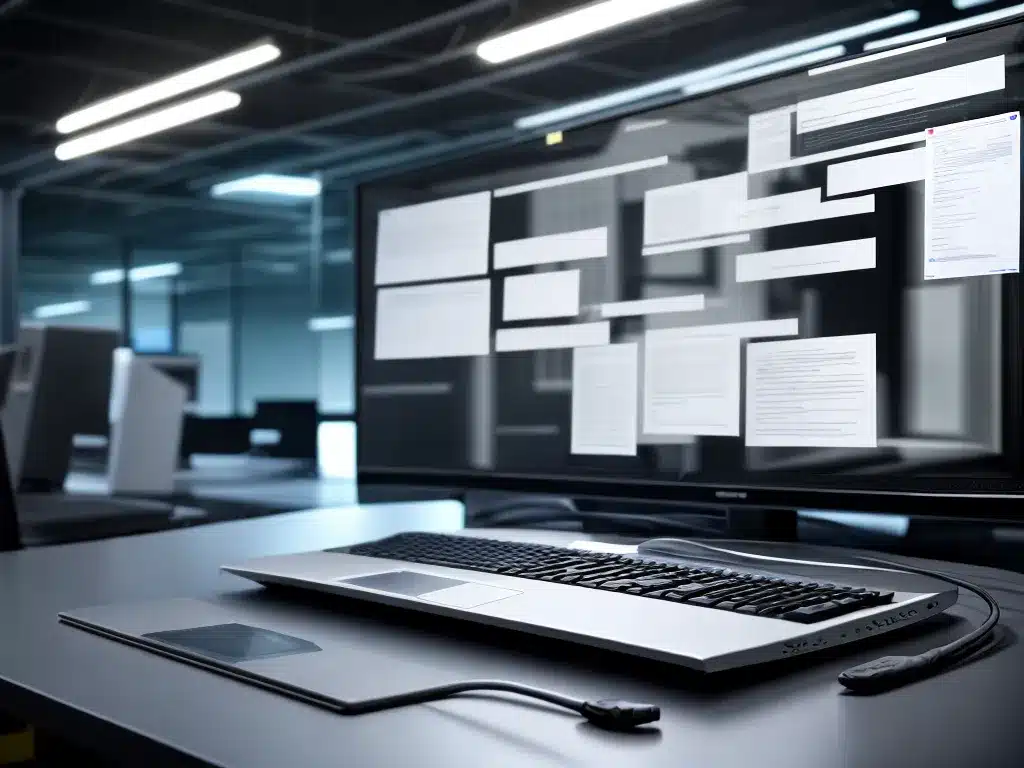
A slow computer can be incredibly frustrating. As I use my computer daily for work and personal tasks, a lagging system really slows me down. Thankfully, there are various ways I can speed up my slow computer to boost performance and productivity.
1. Close Unnecessary Programs
Having too many programs and browser tabs open bogs down a computer’s memory and CPU usage. When I notice my computer running slow, the first thing I do is close any programs or browser tabs I am not using.
I carefully go through each open application and browser tab, closing ones that are not needed at the moment. This frees up RAM and processing power for the programs I am actively using. I also make sure background applications like iTunes or Skype are closed if not being used.
Simply closing unnecessary programs and browser tabs can dramatically speed up a slow computer. It’s one of the easiest and most effective ways to improve performance.
2. Update Hardware Drivers
Outdated hardware drivers can definitely lead to a sluggish computer. I make it a point to regularly update all my hardware drivers to ensure optimal performance.
I use utilities like Driver Easy to scan my computer and identify any drivers that need updating. Updating my graphics drivers, in particular, has really helped improve gaming and video playback performance.
Updating your mouse, keyboard, printer and other hardware drivers can also smooth out computer operation. Be sure to get the latest drivers directly from the manufacturer’s website when possible. Keeping your hardware drivers updated is key to avoiding a slow computer.
3. Run a Virus Scan
Viruses, malware, and other security threats can secretly run processes in the background that really slow down a computer. If my computer starts lagging, I run a full system scan using antivirus software like Avast or Malwarebytes.
This allows me to detect and remove any viruses or malware that may be infecting my system and causing performance issues. I schedule regular weekly scans to proactively catch and clean malware.
Removing virus and malware infections has dramatically sped up computers I use both personally and for work. Don’t ignore the performance impact of security threats.
4. Check for Disk Errors
Errors on your hard disk can really slow down read/write times and lead to sluggish computer performance. I use Disk Check on Windows or fsck on Linux to scan for and repair disk errors.
Disk errors can occur over time as a disk ages and deteriorates. Running regular disk checks helps me catch and fix such errors before they significantly impact system speed.
Schedulling disk scans and repairs during my computer’s startup sequence allows me to fix disk issues during downtime. This is essential maintenance for maintaining a fast computer.
5.Clean Up the Registry
The Windows registry can become bloated with unnecessary keys and values that slow down the system. I periodically use a registry cleaner like CCleaner to remove invalid, obsolete and corrupted items from the registry.
Cleaning the registry speeds up booting, browsing and general performance. CCleaner also cleans up temporary system files and unwanted junk. Regularly optimizing my PC’s registry and files is key to avoiding a clogged up system.
6. Defragment the Hard Disk
Data fragmentation on a hard disk can really degrade read/write speeds and overall system performance. I schedule weekly quick defrags on my Windows PCs using the built-in Disk Defragmenter utility.
Defragmenting organizes files and data on the hard disk so they can be accessed much faster. It’s a simple task that makes a noticeable impact on speed, especially for older systems.
7. Add More RAM
If your computer still feels slow after trying the above tips, it may be time to upgrade your hardware. Adding more RAM is one of the best ways to speed up a sluggish system, especially if you routinely multitask and use resource-heavy programs.
Upgrading to 8GB or 16GB of RAM can provide a significant performance boost for an older computer. Look up your system model online to determine the maximum RAM capacity and compatible memory types.
Investing in a RAM upgrade can completely transform a slow computer, allowing you to squeeze more life out of your existing system.
In summary, closing unused programs, updating drivers, running maintenance utilities, and upgrading hardware are effective ways to speed up a slow computer. Consistently applying these tips has helped me improve performance on all kinds of PCs over the years. A little periodic maintenance goes a long way in preventing infuriatingly long load times and lag.












